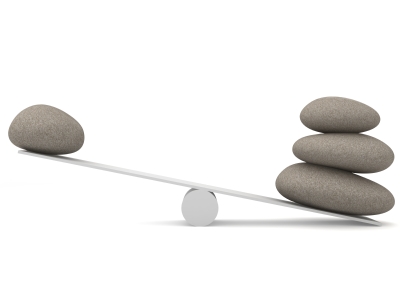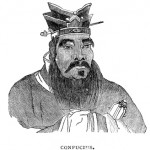What’s the Link Between Trust, High IQ and Investors?
A recent Journal of Finance article suggests there’s a high correlation between IQ and participation in the stock market. Now, what does that mean?
Yale Economics Professor Robert Shiller explores the theme in a NYTimes column. He posits an interesting link between intelligence and trust.
The Smarts To Do What?
IQ tests are notorious for being good at measuring what IQ tests measure. What that is, is another question. But let’s stipulate that mathematical intelligence is somewhat correlated with IQ tests, and that intelligent investing requires more math than buying milk at the supermarket. That might explain why only half of American adults have money in the stock market.
But does it explain why higher-IQ people also seem to construct better-performing portfolios than do lower-IQ people? As Shiller points out, it’s not that high-IQ people are better stock-pickers – they just do a better job of following the basic rules of investing, namely diversify your risk.
But why should ‘rule-following’ correlate with IQ, anyway?
The Smarts to Trust
Shiller cites another study, this one from the Netherlands, that finds “those who indicated a high level of trust were 50 percent more likely to invest in the stock market.”
Further studies indicate low stock market participation may be the result of fear and suspicion – low trust prevents people who don’t understand the stock market from approaching those who do. Namely investment advisors, brokers and the like.
Now the link gets clearer. It may not take a high IQ to understand diversification, but if you don’t trust the people who talk about diversification, you’re not going to learn about it.
Shiller makes another leap here that I’m not so sure about: as he puts it, “Knowing whom to trust, and relying on those who are trustworthy, is itself an aspect of intelligence.”
Intelligence, Education and Trust
I’m not going to get involved in defining intelligence, but I do know this. The tendency to trust others has been shown by trust researcher Eric Uslaner to be positively correlated with optimism, and with a sense of control.
People who feel the world is basically going downhill – and that others are controlling their lives – are untrusting people. By contrast, those who feel that the world is generally moving in a positive direction, and who feel some degree of control over their own lives, are more likely to trust other people.
And what drives those distinctions? Uslaner points out the biggest drivers are income inequality and education. In other words: uneducated people in a society of high inequality are at the greatest disadvantage.
The Vicious Circle of Trust, Education and Investment
The less that uneducated people in an unequal society are willing to trust those who understand financial planning, the more likely they are to stay doomed to low income, thus driving perceptions and reality ever downward toward greater inequality. So what’s to be done?
Of course, it would help if the financial industry got more trustworthy. Josh Brown, in Backstage Wall Street, notes that “93% of all investors didn’t understand that their broker didn’t have a fiduciary responsibilty to them.” Yet the industry continues to advertise an image of trustworthiness, while opposing legislation to make them subject to fiduciary standards.
Such behavior definitely drives mistrust, and it’s the industry’s own fault.
But other policies are society’s fault. In the rush to cut our deficits, I heard a few weeks ago that the School District of Los Angeles no longer employs any music teachers. Certainly education has become a far lower priority these days in our rush to what we think is fiscal rectitude. A casualty is trust.
And finally, inequality itself breeds distrust. That simple fact is very uncomfortable for a great many of haves, and a lot of political ideologies. But the fact is, economically egalitarian societies have higher trust levels. Inegalitarian societies have lower trust levels. The trends are self-reinforcing.
Do we want a vicious circle? Or a virtuous circle? If we’d like people to participate in the stock markets, we’re not going to get there by advertising or by cutting school budgets.
We’ll get there through trust. And it shouldn’t take a high IQ to figure that out.



you are right on. what wall street does is very trust destroying. ultimately it is going to turn off people’s interest in investing.
If you are intelligent and have a good understanding of a topic, such as the stock market, you are in a better position to trust the right people-people that know what they’re doing. This in turn would help you make better decisions and more beneficial connections.
David, Victor, thanks for weighing in on this.
To David’s point, I think that’s the right link. The back story (or question) is, how to people come to have a good understanding of a topic? There’s data that suggest poor people with high IQs do less well in college than wealthier people with lower IQs, so the question of wealth is linked back together with the acquisition of knowledge, which circularly leads back to wealth. It gives new meaning to the phrase “money makes money,” and it’s messy!
Which leads to Victor’s point: an industry that is seen as obfuscating isn’t helping. It’s one thing to call for educating people about CAPM and risk/return; it’s quite another to be open about one’s own guiding principles – and people can tell the difference, regardless of their IQ.